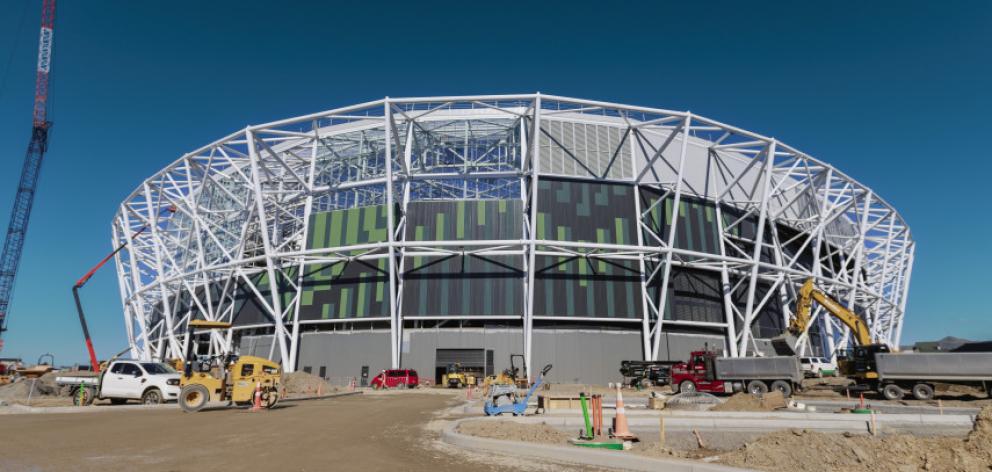Business
Christchurch Hospitality Sector Sees 7% Spending Increase

Spending on food services and commercial accommodation in Christchurch surged by 7% in August compared to the same month last year, indicating a potential easing of financial pressures on the hospitality sector. According to Hospitality New Zealand, this increase reflects a growing confidence among consumers who appear more willing to spend on local dining and accommodation options.
Positive Trends and Local Confidence
Interim Chief Executive Nick Keene noted that Christchurch’s rise in hospitality spending is one of the highest nationwide. He expressed optimism, stating, “It’s great to see the passion for the industry remains.” The number of hospitality businesses in the region, encompassing both accommodation and food services, increased by 1.5% compared to last year, further supporting the notion that local households are regaining confidence in their financial situations.
While closures of hospitality venues have been more visible, Keene pointed out that new establishments continue to open, suggesting a dynamic environment. “The pressures on tourism and hospitality of the past few years have seen a number of owners exit the industry, and some consolidation of business groups,” he explained. Despite ongoing economic challenges, he noted that the situation is stabilizing, although owners are still cautious about future investments and growth.
Future Prospects and Challenges
Looking ahead, leaders in the industry, such as Jeremy Stevens, President of the Canterbury branch of Hospitality NZ, anticipate increased spending in the coming year. The opening of the new metro sports centre and the upcoming 30,000-seat indoor stadium, known as Te Kaha, are expected to attract more visitors to the city, boosting accommodation and central city traffic. Additionally, a significant redevelopment project is underway, with a $150 million investment transforming the former Rydges Hotel into a five-star Sheraton Hotel, which has remained vacant since the earthquakes.
Despite these positive indicators, Keene cautioned that cost pressures continue to challenge hospitality businesses. Rising rents, electricity, and gas costs, along with increasing prices for goods, place additional burdens on owners striving to maintain affordability for customers. “Outlets are still in a balancing act between covering costs and preventing pushing prices up too high,” he noted.
While farmers may be benefiting from rising agricultural prices, this does not necessarily translate to a willingness among consumers to pay more for their meals. Keene emphasized that although there is more cash in circulation, it does not guarantee that the broader customer base will accept higher prices for their preferred dishes.
Overall, the state of the hospitality sector remains mixed, with some areas thriving while others continue to struggle. Keene remains cautiously optimistic about the outlook for the industry, hoping to see an uptick in tourism numbers as the year progresses. In addition, motel owners report a decrease in available motels on the market, suggesting a tightening of accommodation options as demand begins to recover.
-

 World4 months ago
World4 months agoTest Your Knowledge: Take the Herald’s Afternoon Quiz Today
-

 Sports4 months ago
Sports4 months agoPM Faces Backlash from Fans During Netball Trophy Ceremony
-

 Lifestyle4 months ago
Lifestyle4 months agoDunedin Designers Win Top Award at Hokonui Fashion Event
-

 Entertainment5 months ago
Entertainment5 months agoExperience the Excitement of ‘Chief of War’ in Oʻahu
-

 Sports4 months ago
Sports4 months agoLiam Lawson Launches New Era for Racing Bulls with Strong Start
-

 World5 months ago
World5 months agoCoalition Forms to Preserve Māori Wards in Hawke’s Bay
-

 Health4 months ago
Health4 months agoWalking Faster Offers Major Health Benefits for Older Adults
-

 Lifestyle4 months ago
Lifestyle4 months agoDisney Fan Reveals Dress Code Tips for Park Visitors
-

 Politics4 months ago
Politics4 months agoScots Rally with Humor and Music to Protest Trump’s Visit
-

 Top Stories5 months ago
Top Stories5 months agoUK and India Finalize Trade Deal to Boost Economic Ties
-

 Health2 months ago
Health2 months agoRadio Host Jay-Jay Feeney’s Partner Secures Visa to Stay in NZ
-

 World5 months ago
World5 months agoHuntly Begins Water Pipe Flushing to Resolve Brown Water Issue








